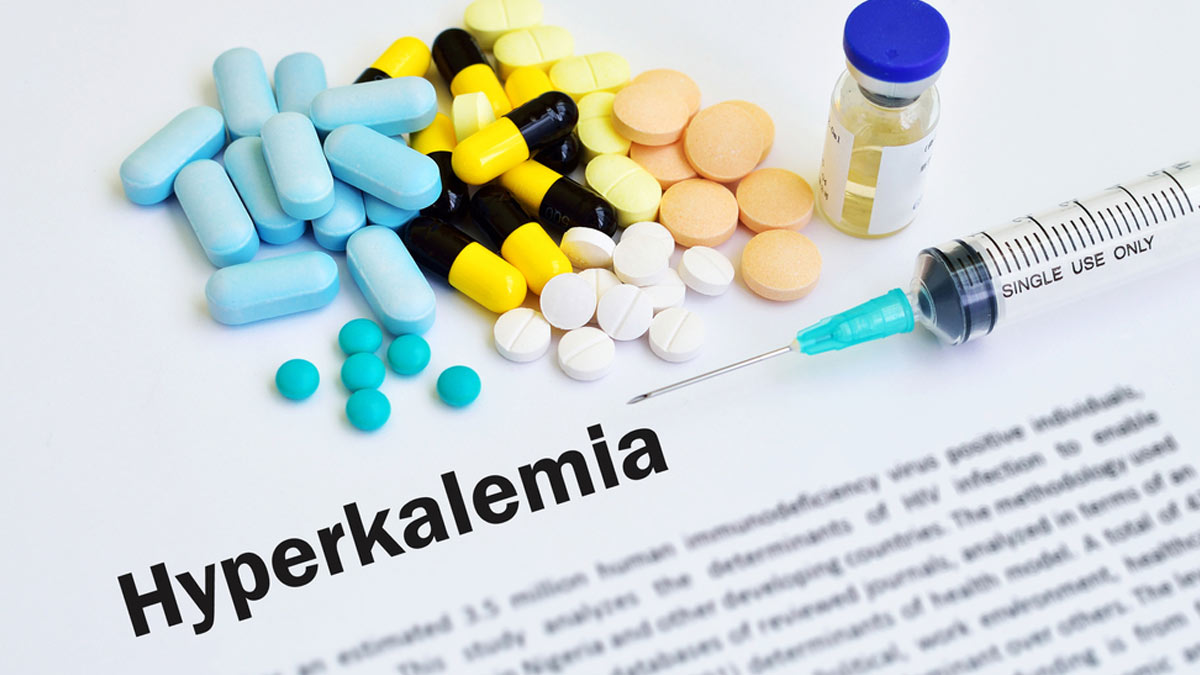
A healthy body needs to maintain a balance of all nutrients, such as carbohydrates, fats, and iron. An imbalance in any of these nutrients can cause health complications. One such condition, which occurs when the potassium levels in your body are higher than normal levels is hyperkalemia. To understand more about this condition, we spoke to our expert Dr Pawan Singh, Consultant Dermatologist, Regency Hospital, Kanpur, who explained hyperkalemia and listed dietary tips you should follow.
Table of Content:-
According to StatPearls, hyperkalemia refers to a potassium level in the serum or plasma that is higher than the upper limits of normal, typically 5.0-5.5 mEq/L. Higher concentrations, often between 6.5-7 mEq/L, are when symptoms first appear; however, the rate of change matters more than the exact amount.
Symptoms Of Hyperkalemia

Dr Singh listed the symptoms of hyperkalemia as follows:
- Muscle weakness
- Irregular heartbeat
- Fatigue
- Numbness
“In severe cases, it can lead to potentially life-threatening cardiac arrhythmias”, added Dr Singh.
Causes of Hyperkalemia

- Kidney dysfunction: One of the major causes of hyperkalemia is impaired kidney function, as the kidneys help regulate potassium levels. According to the National Kidney Foundation, hyperkalemia is experienced by 40%–50% of patients with kidney disease.
- Certain medications: Some drugs, like potassium-sparing diuretics, can elevate potassium levels.
- Diet: Consuming excessive amounts of high-potassium foods can also cause hyperkalemia.
According to a 2017 study that appeared in the Clinical Journal of the American Society of Nephrology, patients on a potassium-restricted diet who had stage 3 or stage 4 chronic renal disease had a lower risk of developing neuropathy.
Dos Of Eating With Hyperkalemia
It is essential to take essential measures if you are diagnosed with hyperkalemia. Dr Singh listed some of them as follows:
Monitor Potassium Intake
It is essential to monitor your potassium intake to avoid further rise. Opt for foods which are low in potassium, such as apples and berries. Make sure you read the food labels and purchase items which have low potassium content.

Limit Potassium Additives
Dr Singh advises you to be cautious of salt substitutes and ‘low-sodium’ products as they contain potassium-based additives.
Drink Water
Dehydration can cause an imbalance in electrolyte levels in your body and lead to hyperkalemia. Hence, it is important to drink an adequate amount of water to keep yourself hydrated.
Talk To Your Doctor
You should consult with your dietician to manage your dietary intake and create a customised plan tailored to your needs and body type.
Also Read: Kidney Disease: Expert Explains Stages Of Kidney Disease And How To Prevent It
Don’ts Of Eating With Hyperkalemia
Avoid High Potassium Foods
“Avoid foods like bananas and sweet potatoes as they are high in potassium and can cause complications. If you consume too much of anything, even something that is thought to be low in potassium can cause your levels to rise”, said Dr Singh.

Say No To Potassium Beverages
You should refrain from drinking beverages that include potassium (orange juice or sports drink), even in tiny amounts, since this can cause a rise in potassium levels.
Reduce Salt Substitutes
It is important to avoid salt substitutes as they contain potassium chloride, which can exacerbate hyperkalemia.
[Disclaimer: The information in this article is provided by a registered healthcare professional and is for informational purposes only. We advise you to consult your expert for a dietary plan catered to your needs and not substitute this information with medical treatment.]
How we keep this article up to date:
We work with experts and keep a close eye on the latest in health and wellness. Whenever there is a new research or helpful information, we update our articles with accurate and useful advice.
Current Version